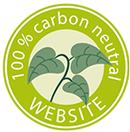**Circular Economy in the Beauty Industry: Reducing Waste Creatively**
The beauty industry traditionally has been a significant contributor to environmental waste. According to Zero Waste, more than 120 billion units of packaging are produced every year by the global cosmetics industry, much of which is non-recyclable. However, the tide is turning. More beauty companies are embracing the circular economy model by implementing sustainable practices into their operations.
**The Problem: High Waste Generation**
One of the primary challenges in the beauty and personal care industry is the excessive generation of product and packaging waste. Most cosmetic packaging is comprised of mixed materials (plastic, glass, metal) making them challenging to recycle. Items such as mascara tubes, lipstick containers, and foundation bottles often end up in landfills or, worse, find their way into oceans.
Another issue is product waste. Consumers often purchase products but do not use them entirely before they expire, leading to unnecessary waste. This is not only environmentally damaging but also economically inefficient for both businesses and consumers.
**The Solution: Embracing the Circular Economy**
The circular economy model presents an effective solution. Unlike the traditional linear economy – make, use, dispose – the circular economy focuses on make, use, and reuse or recycle. For the beauty industry, this translates into designing products to last longer, be repaired, or recycled, minimizing waste generation, and utilizing resources more effectively.
**Case Study: Lush Cosmetics**
Lush Cosmetics has stood out as a champion of the circular economy in the beauty industry. Their „bring back“ scheme, for instance, incentivizes customers to return used product pots. For every five returned pots, customers receive a free face mask. Lush then cleans and melts down these pots to create new ones, keeping them in circulation instead of letting them end up in a landfill.
Lush also sells a range of ’naked‘, or packaging-free, products, from shampoo bars to body lotions. This innovation eliminates the need for packaging, reducing the waste footprint substantially.
**Best Practices for Implementing Circular Economy**
1. **Sustainable Packaging:** Using recyclable, biodegradable, or compostable packaging reduces the ecological impact significantly. Moreover, designing packaging that can be easily disassembled ensures that individual elements can be completely recycled.
2. **Refillable Systems:** Brands can provide refillable options for their products, so consumers only need to purchase the product’s main body.
3. **Product Design:** Designing goods to last longer or creating multi-use products can decrease the number of items consumers need to purchase, thereby reducing waste.
4. **Recycling Programs:** Like Lush, beauty companies can implement recycling programs or incentives for customers to return used products or packaging.
**Main Takeaways**
1. The beauty industry’s move towards a circular economy model is driven by the need to confront its environmental footprint. This transition is not only crucial for environmental reasons, but it also values in terms of consumer loyalty and brand reputation.
2. Companies like Lush Cosmetics have shown that implementing circular economy principles is viable and profitable in the beauty industry.
3. Sustainable packaging, refillable systems, green product design, and recycling programs are some of the best practices for applying circular economy principles.
4. According to a 2019 Statista poll, 71% of consumers are willing to pay more for products packaged sustainably, suggesting that circular economy principles can also have economic benefits for companies.
We are witnessing an essential shift towards sustainability in the beauty sector, with brands striving to go beyond minimizing harm to actively benefiting the planet. Still, there is plenty of room for growth and innovation. As the beauty industry embraces the circular economy to reduce waste creatively, it is helping to lead the way towards a more sustainable and waste-free future.
If you want to explore more about the circular economy and how implementing it can benefit your business operations, please continue browsing our website, where you can find a myriad of courses and consulting services designed to guide you on your sustainability journey.

 Español
Español English
English

Comments are closed.